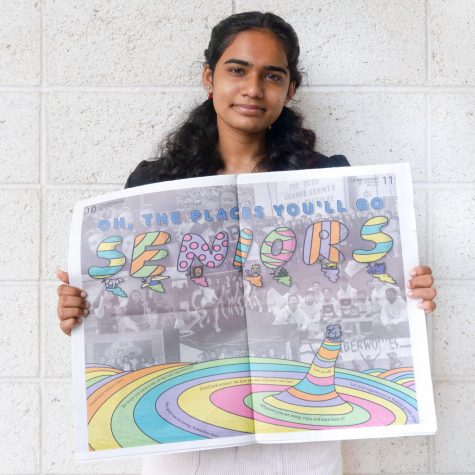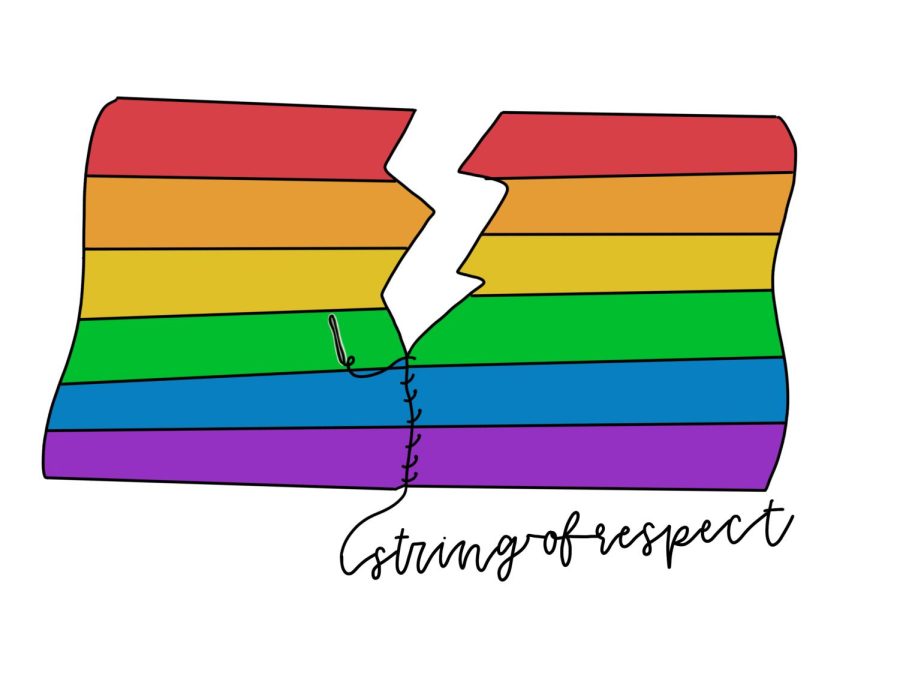Homophobia Is Not Making Anyone Less Gay
Creating a more LGBTQ+ inclusive environment can be as simple as using someone’s preferred pronouns, avoiding the use of derogatory language or refraining from referring to someone by their deadname. “You could educate yourself. It doesn’t have to be full-on like research, but just being aware,” a sophomore who would like to remain anonymous said.
“That’s so gay.” It is a phrase thrown around in daily conversations – yet it carries a meaning far more belittling for LGBTQ+ individuals. This phrase is just one example of the homophobia many LGBTQ+ students and adults face because of their gender or sexuality.
Homophobic dialogue plagues the nation: from a video of teenagers burning the Pride flag while saying, “All gays die,” at Kearns High in Utah to members of the Gender and Sexuality Alliance at Florida high school hearing screams of, “There’s only two genders,” and “Y’all have mental illnesses.”
But for some at Portola High, instances of homophobia are not limited to the news.
“Last year, I decided to come out to my close friends, and for about a month following that, they would always greet me with slurs,” sophomore Morgan F.* said. “They would say it was a joke, but it wasn’t funny.”
Another student spoke about their transgender friend who has had challenges with their gender due to their family.
“But for them, it’s been difficult because even though he’s come out and is very open about his sexuality and gender identity, he’s had several arguments with his mom, and because of those arguments, he has struggled with really difficult thoughts,” sophomore Riley S.* said.
While many people may find it hard to actively change their mindset, simply referring to someone by the correct pronouns and respecting someone’s sexual orientation can go a long way in creating an environment that is LGBTQ+ inclusive.
“I feel like attraction is one of the easiest things to understand,” non-binary sophomore Jessie D.* said. “If you are straight, you can understand what it’s like to love or like someone else, and you can apply that information to the experiences of LGBTQ+ people because they’re just like you. With gender, it’s a little bit more difficult, but to me, pronouns — if they make someone happy, why should you be against that?”
It is never too late to make a difference in the community. Respecting the LGBTQ+ community does not require large amounts of time and research but rather smaller steps that can still make a difference.
“For example, the effort my friends put into gendering me correctly may be a small step out of their day just to say a different word than they usually do, but to me, that makes my day all that much better,” Jessie D. said.
In the end, the impacts of using someone’s preferred pronouns and refraining from offensive jokes are crucial to reinforcing the basic messages of respect and acceptance.
*For purposes of anonymity, the interview sources in this article are referred to as Morgan F., Riley S., and Jessie D.
Your donation will support the student journalists of Portola High School. Your contribution will allow us to purchase equipment and cover our annual website hosting costs.

Shaina Taebi is the Backpage Editor for her third year in the Portola Pilot. For her final year she is excited to spend class time drawing more editorial...

Tara Vatandoust is an Editor-in-Chief for her third, and sadly, final year on the Portola Pilot. This year, she is looking forward to (finally!) being...

Dheeksha Bhima Reddy is the co-Editor-in-Chief for her third and final year on the Portola Pilot. Through her newfound obsession of drinking coffee (cold...




